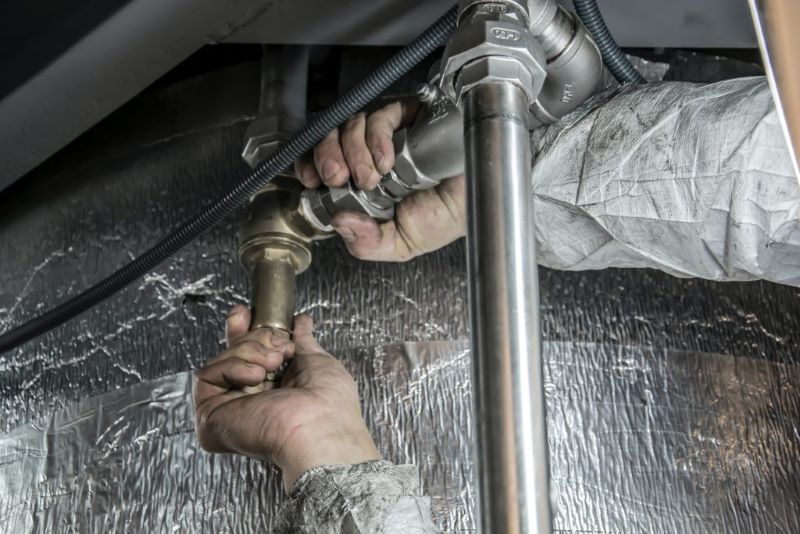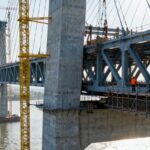Plumbing disasters can strike at any time, often without warning, and can cause significant damage to your home. While some plumbing issues may seem minor at first, they can quickly escalate into a full-blown disaster if not addressed promptly and properly. In this latest article, we will explore practical steps you can take to avoid a plumbing disaster, ensuring that your home remains safe and dry.
Regular Maintenance and Inspections
One of the most effective ways to prevent a plumbing disaster is to conduct regular maintenance and inspections. This includes:
- Checking for Leaks: Regularly inspect your home for any signs of leaks, such as water stains on walls or ceilings, damp spots on the floor, or mold growth. Even small leaks can lead to significant damage over time, so it’s essential to address them as soon as they are detected.
- Inspecting Pipes and Fixtures: Over time, pipes can corrode, and fixtures can wear out. It’s important to periodically inspect your pipes for signs of rust, corrosion, or damage. Additionally, check faucets, toilets, and other fixtures to ensure they are functioning correctly.
- Water Pressure Monitoring: High water pressure can strain your pipes and lead to leaks or bursts. Use a water pressure gauge to monitor your home’s water pressure and adjust it if necessary. The recommended pressure is usually between 40-60 psi.
Regular maintenance can help you identify and fix small issues before they become big problems, saving you from costly repairs in the future.
Proper Use of Plumbing Systems
Another key aspect of avoiding a plumbing disaster is using your plumbing systems correctly. Misuse or overuse can lead to blockages, leaks, and other issues.
- Dispose of Waste Properly: Never pour grease, oil, or fat down your drains, as they can solidify and cause blockages. Similarly, avoid flushing items like sanitary products, wipes, or cotton balls down the toilet. These items do not break down easily and can clog your pipes.
- Avoid Chemical Drain Cleaners: While it may be tempting to use chemical drain cleaners to clear a clog, these products can actually cause more harm than good. The harsh chemicals can corrode your pipes and lead to leaks. Instead, opt for a plunger or a drain snake to remove blockages.
- Mind What You Plant: Tree roots can be a significant cause of plumbing disasters, as they can grow into your pipes and cause blockages or even break them. Be mindful of where you plant trees and shrubs, and consider the location of your underground pipes when landscaping.
Proper use and care of your plumbing systems can go a long way in preventing a disaster from occurring.
Install Preventative Devices
Installing preventative devices in your home can provide an extra layer of protection against plumbing disasters. Consider the following:
- Water Leak Detectors: These devices can be placed near appliances or fixtures that are prone to leaks, such as washing machines, water heaters, and under sinks. If a leak is detected, the device will alert you, allowing you to take action before the problem worsens.
- Automatic Shutoff Valves: These valves can be installed on your main water line and are designed to automatically shut off the water supply if a leak is detected. This can prevent extensive water damage if a major leak occurs.
- Pressure Regulators: Installing a pressure regulator can help maintain a safe water pressure level in your home, reducing the risk of pipe bursts due to high pressure.
These devices are relatively inexpensive and can provide peace of mind, knowing that your home is protected from potential plumbing disasters.
Know the Location of Shutoff Valves
In the event of a plumbing emergency, it’s crucial to know the location of your main shutoff valve as well as individual shutoff valves for toilets, sinks, and other fixtures. Shutting off the water supply quickly can prevent a minor issue from turning into a disaster.
- Main Shutoff Valve: Typically located near where the main water line enters your home, the main shutoff valve controls the flow of water into your home. Make sure everyone in your household knows where it is and how to turn it off.
- Fixture Shutoff Valves: Each sink, toilet, and appliance should have its own shutoff valve. Familiarize yourself with their locations and how to operate them.
Knowing how to quickly shut off the water supply can minimize damage and give you time to address the issue.
Hire a Professional for Major Repairs
While DIY repairs can be tempting, especially for minor issues, it’s important to recognize when a problem requires professional attention. Attempting to fix major plumbing issues on your own can lead to mistakes that could exacerbate the problem.
- Complex Repairs: If you encounter a complex issue, such as a broken pipe, significant leak, or sewer line problem, it’s best to call a licensed plumber. They have the expertise, tools, and experience to diagnose and fix the problem correctly.
- Permits and Regulations: Some plumbing repairs, especially those involving the main water line or sewer system, may require permits and must be done according to local codes. A professional plumber will ensure that all work is compliant with regulations.
- Long-term Solutions: A professional plumber can also provide long-term solutions rather than temporary fixes, which can save you money and prevent future disasters.
By recognizing the limits of your DIY skills and knowing when to call in a professional, you can avoid costly mistakes and ensure that your plumbing system remains in good working order.
Preventing a plumbing disaster requires vigilance, regular maintenance, proper use of plumbing systems, and knowing when to seek professional help. By taking these proactive steps, you can protect your home from the extensive damage and inconvenience that plumbing disasters can cause. Remember, the key to avoiding a disaster is to address potential issues before they escalate. With the right approach, you can keep your plumbing system in top shape and enjoy peace of mind knowing that your home is safe from plumbing-related emergencies.













Tech to Trick I truly appreciate your technique of writing a blog. I added it to my bookmark site list and will
Thank you I have just been searching for information approximately this topic for a while and yours is the best I have found out so far However what in regards to the bottom line Are you certain concerning the supply